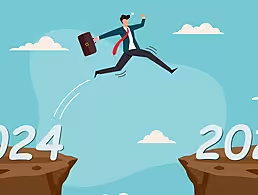Cheryl Contee, CEO of Do Big Things, talks about her journey as a black woman founder in tech and why diversity needs to be more than just a ‘nice-to-have’ policy.
What challenges does a woman of colour face in the start-up world? Is there still a diversity problem in tech? These are some of the questions I got to ask Cheryl Contee, CEO of Do Big Things, after she spoke at Collision from Home last month.
Do Big Things is a creative agency that works with campaigns for social change, such as Every Town for Gun Safety and Color of Change. It is also a company that focuses on social change within its own team.
At Do Big Things, 70pc of the staff are women and 50pc are black, indigenous and people of colour (BIPOC). Putting in the work to build an inclusive team was a priority for Contee, she explained, for a number of reasons.
“We believe that diversity is not just a nice-to-have or a moral imperative,” she said. “The thing that I say to people is that diversity in technology is an economic imperative. We’re not going to solve the world’s problems, we can’t create the most amazing apps and products and services, unless we’re getting ideas from as many people as possible, from as many different backgrounds.”
And the data agrees, Contee added. “All of the research shows that having a diverse team makes you more productive and more profitable. So, if you want to make money, have a diverse team.”
‘We look different than a lot of our peers’
The potential gains of inclusive teams go beyond productivity, too. Contee and her colleagues are confident that their own diversity allows them to better engage the people their clients want to reach, “which often involves women, which often involves BIPOC folks”.
“We believe that having people who are immigrants or from immigrant families, we believe that having people from a lot of different walks of life and backgrounds, actually then makes it easier for us to be effective in talking to different key audiences,” she said.
“And so, how we’ve built our team is by actually being open to people from different backgrounds. And we look different than a lot of our peers in the space. If you look at the founders of their company or the leaders, it’s mostly white guys and, you know, that’s fine.
“But at the same time, we believe that it is very much a strength, a strategic strength, that we have leaders and a team that is 70pc women and 50pc people of colour. We also have lots of out-and-proud LGBTQ staffers.”
‘We’re not going to solve the world’s problems unless we’re getting ideas from as many people as possible’
– CHERYL CONTEE
The team at Do Big Things draws on its network to find new hires from different backgrounds, Contee explained. She also emphasised, though, that diversity and inclusion need to be built in at every level of the company, “so that senior staff members have those different perspectives to rely upon when they need it”.
“That’s really important because those are the people who are making decisions,” she added.
The challenges for a black woman founder
Given how she has shaped Do Big Things, I was eager to learn more about Contee’s own career journey.
“One of the first things I tell people is that I am proof that you can be terrible at coding and still have a very rich and rewarding career in technology,” she said.
“I know I’m more of an ‘ideas person’, but I’ve been really fortunate to have found this career that combines creativity and technology and the opportunity to move the world forward on social change.”
Do Big Things wasn’t Contee’s first venture into tech leadership. She previously co-founded Attentive.ly, which was bought by software firm Blackbaud in 2016, becoming the first tech start-up with a black woman founder to be acquired by a Nasdaq-traded company.
When she was setting it up, however, Contee faced major setbacks in securing funding for the company’s first round. “Things are better now, certainly getting better, but when I was launching that firm it was very difficult,” she said.
At this stage, Contee had already co-founded a digital agency, Fission Strategy, and helped start the Jack and Jill Politics blog under the pseudonym Jill Tubman. But despite her experience and contacts, she was still seen by investors as “risky”.
‘Having a diverse team makes you more productive and more profitable. So, if you want to make money, have a diverse team’
– CHERYL CONTEE
“Which is, looking back, astonishing,” she said. “That’s crazy. It took me a really, really long time to get the funding for our first. I had to make a lot of phone calls.
“And I actually learned that women had trouble getting angels to sign cheques. There was a real notion of like, ‘I just don’t feel comfortable’ or ‘it feels risky’, which is just implicit bias.
“They told me that it takes about seven contacts to get a white female-founded start-up funded. On average, it takes 50 – yes, 50 – to get a black female-founded start-up funded. That’s not great. That’s not efficient.
“That means you’re just asking a lot more of that business. I mean, doesn’t that sound like some sort of distortion in the system whereby otherwise really good companies are getting capitalised at a lower rate and later than they should?”
‘Haters to the left’
Though things are getting better now, Contee said that it hasn’t been enough. In an article she wrote for Harvard Business Review, she highlighted research that suggested 77pc of venture-backed founders are white and 90pc are men. “While intentional or not, the tech start-up landscape has been optimised for middle and upper-class white males,” she wrote.
So, for young BIPOC women who want to set up their own company one day, there are a few things Contee recommended doing. Mostly, she described the pivotal part mentors played in her journey. “No matter what career you take on as a black or brown person, you’re likely to experience some sort of bias or discrimination.
“But I do have to say that there’s so many wonderful people in technology and I’ve had a lot of support. But also, I’ve worked hard to cultivate my network and get that feeling like I’m part of a cohort of people who are interested in a lot of the same things.
“We got to know each other when we were younger and have kept in touch and have helped support each other along the way. I think there’s no replacement for that.”
A discussion about diversity and inclusion in tech could have continued for hours, but Contee finished up our call with some words of inspiration: “Don’t give up, believe in yourself. Be persistent. Haters to the left. Don’t waste any time on the people who don’t get it or who don’t get you.
“There are people out there who want to support you and who are excited to see you. Focus on that. Focus on those people. And, again, build your network. That network, you’ll find, is worth more than its weight in gold in terms of how you can support others and how others will support you.”




